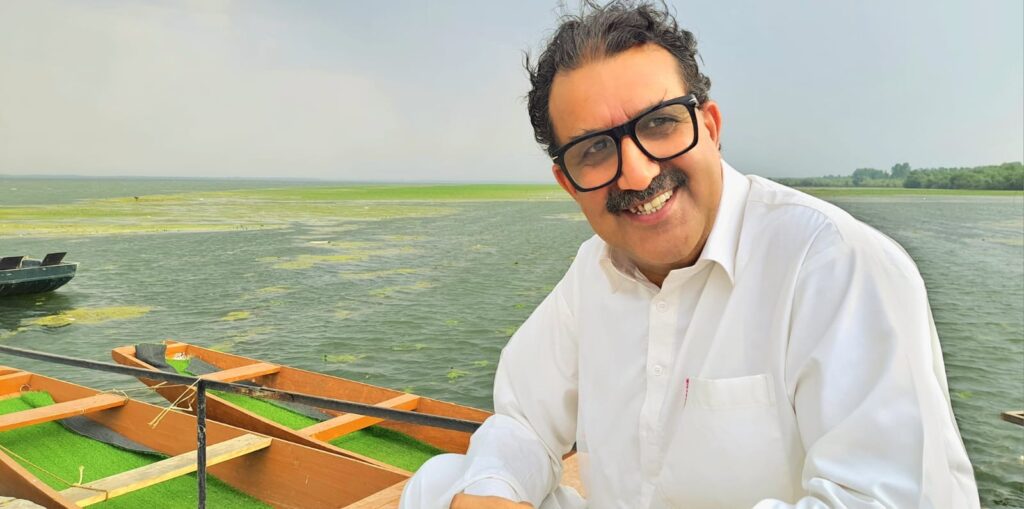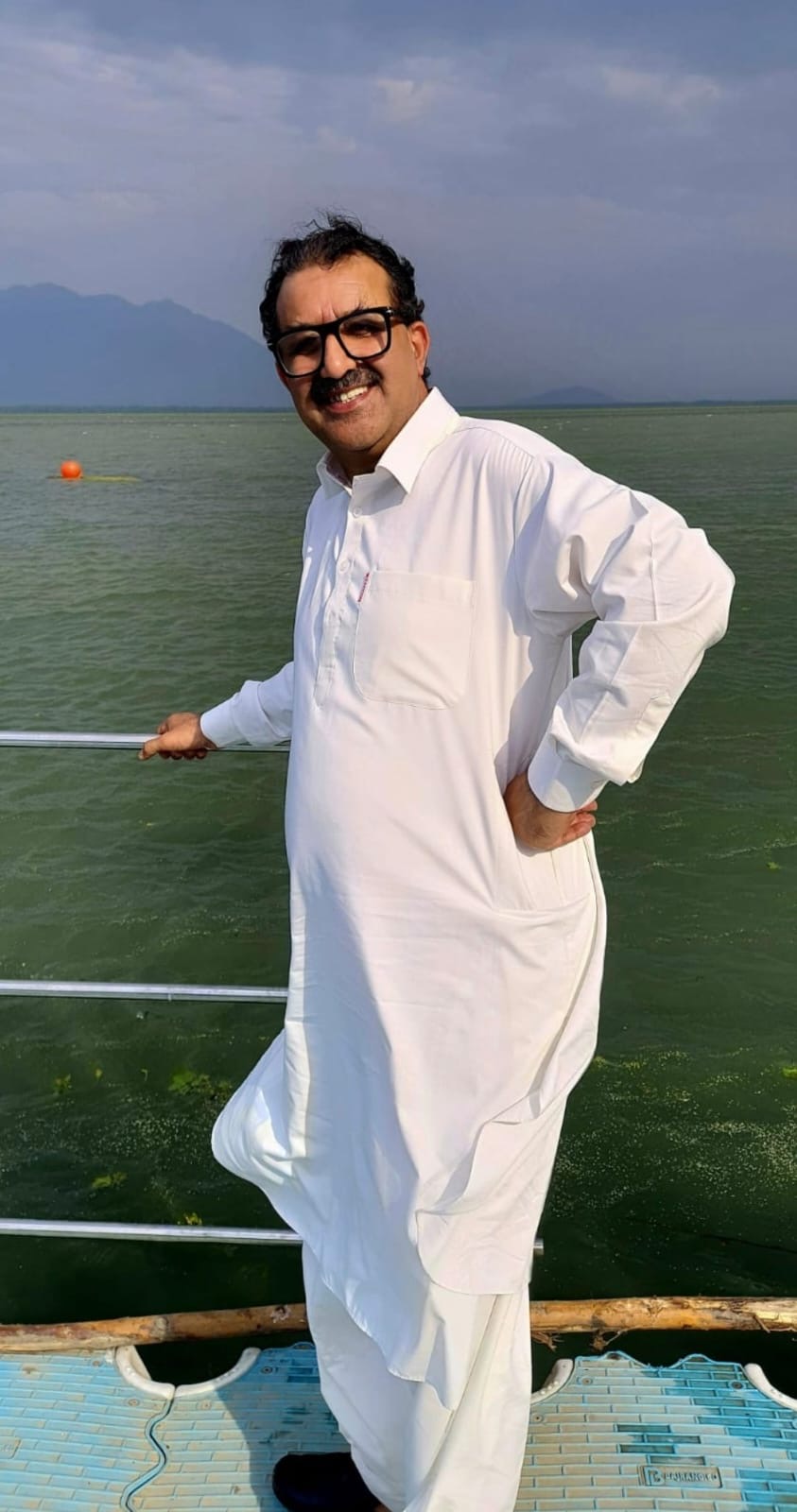Visiting Wular, one of Asia’s largest freshwater lake, has always been more than just a travel dream for me. It is a recurring longing. I had first seen it as a boy when my family lived on the banks of the Jhelum in a Sopur mohallah called Hati Shah, named after the Sufi saint Hathi Shah. Legend has it that the saint travelled across Kashmir on the back of an elephant. Hathi in Urdu giving the place its name. Our mohallah was just a few kilometres away from Wular.
Even after we shifted to the outskirts of Sopore town, and later, when I moved to Srinagar for studies and eventually settled there, my longing for Wular returned time and again like an old song that never quite fades from memory.
Back to the lake from zurmanz route

Last week I finally found myself again on the banks of this vast blue marvel, this time in the company of my younger brother, Prof Tariq Masoodi a seasoned media professional and former Media Director at the University Institute, Chandigarh University. He is home in Kashmir with his family right now for the Eid vacations. This time he explored a new route to Wular, taking the Zoormaz-Watlab road a short 30-minute drive from Sopore. What better way to celebrate Eid than by revisiting the timeless waters of Wular?
How I first knew about wular
Wular, with all its mystery and magnitude spreads across the lap of north Kashmir. It stretches through Bandipora district absorbing the waters of the mighty Jhelum and numerous streams like Ningli. My childhood fascination was fed by tales of fishermen, our neighbours and elders and friends like Gulab Dar, Akul, Aziz Dar, Ismaal Dar, Ramzaan , Nasir Dar and Akbar Dar . Their stories their boats, and their everyday life around the lake etched Wular deeply into my imagination.
The other view

I have viewed the lake from different vantage points watlab. Ningli, , and Bandipora and each offers its own world. This time was no different. As we drove past rustling poplars and golden mustard fields, Wular opened before us like an epic. Calm yet commanding, deep yet inviting. It felt like meeting an old friend, one who has quietly aged with grace but carries invisible wounds.
Standing on its banks, I was reminded of The Old Man and the Sea, my most beloved novel. Like Hemingway’s fisherman Santiago, I too saw the water as both friend and force. And Wular watches silently, as human greed claws at its edges.
The mother to many
We saw some boats returning from an afternoon catch. The fish of wular is famous all across Kashmir( wular Gaad) as it is popularly called. Fishing here is not just a means of survival but it is a tradition, culture, and memory intertwined. It sustains hundreds of families who know no other livelihood.
Wular is also known for its Khor, a unique aquatic weed much loved by cattle, especially cows. The lakes ecosystem supports a rich biodiversity, migratory birds, rare aquatic plants. It is a living classroom, a fragile wonder.
Wular calls for help
But then, the darker side of the story revealed
As well as us. Floating gardens, Raadh, as locals call it, are steadily taking over the lake’s surface. These are slow but deliberate encroachments. The lake seemed to gasp under the weight of this quiet invasion.
The Wular Conservation and Management Authority (WUCMA) has initiated some work, but the pace is painfully slow. If serious efforts aren’t taken soon, this ecological jewel may be irreparably damaged. There must be urgent enforcement against encroachments and a genuine restoration of balance.
As the evening descended, my brother and I sat by the shore, letting the breeze stir our thoughts. Wular was serene, reflecting scattered clouds in its mirror-like surface. Yet beneath that calm lay many stories, some joyous, some bearing the cruel scars of time.
Adieu
We left with hearts both full and heavy. Full
because we had touched a part of Kashmir that still clings to its soul. Heavy, because we had seen how easily that soul could be lost.
Wular is more than a lake. It is a breathing legacy of Kashmir’s natural and cultural heritage. Let it not become just another forgotten waterbody. Let it remain what it always was, a keeper of life, a mirror to the sky, and a story yet unfinished.
